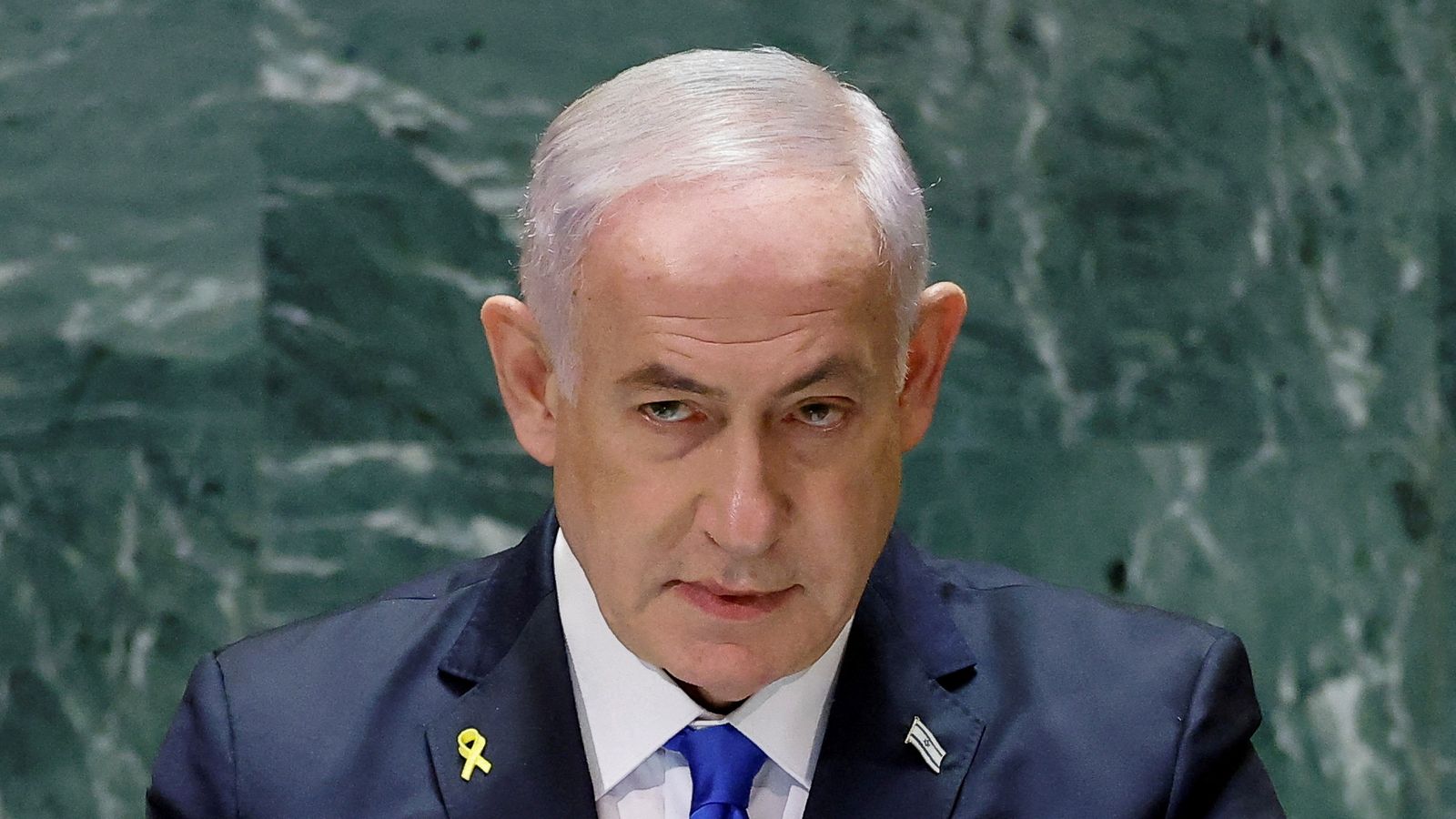A high noon is coming in Israel’s conflict with Iran, a ballistic missile showdown may be in the offing or perhaps something more asymmetrical and covert.
Israel‘s Prime Minister Benjamin Netanyahu is deciding how to retaliate for Iran‘s multiple rocket attack on 1 October this year.
But the plan is shrouded in secrecy. In a video address on Sunday morning, Benjamin Netanyahu warned his ministers: “Talk little, do a lot.”
Follow latest: Netanyahu tells UN to get peacekeepers out of Lebanon ‘danger zone’
Sources have told Sky’s US partner NBC the Israelis are focusing on plans to target military and energy infrastructure. An attack on Iran’s alleged nuclear weapons programme is now thought to be unlikely.
A strike on Iran’s oil facilities could have massive repercussions far beyond the Middle East – both economic and political.
Iran has warned it would hit back by attacking installations across the gulf in the Emirates, which could lead to a sharp increase in the price of crude oil, potentially disastrous for the global economy.
Please use Chrome browser for a more accessible video player

2:08
What might Israel do next?
Higher oil prices could in turn lead to pump prices rising sharply in the US in the last weeks before the presidential election, potentially helping Donald Trump’s chances of re-election – an outcome Benjamin Netanyahu would welcome.
For now though, the Israelis are keeping the world guessing as to when and exactly how they will strike Iran. They may choose a less obvious option too.
Read more:
Israel’s next move could bring even bigger war
How Middle East conflict might put Trump in White House
‘Life was beautiful’: What Gaza has lost in a year of war
Israel is thought to have deeply penetrated Iran with intelligence assets. A covert attack on its infrastructure or government is possible.
One development may give clues as to timing. The US is reportedly in discussions with Israel on sending another advanced anti-ballistic missile defence system, known as THAAD.
Follow Sky News on WhatsApp
Keep up with all the latest news from the UK and around the world by following Sky News
Tap here
The system would give Israel invaluable added protection if Iran strikes back again. But its deployment has yet to be finalised, suggesting any Israeli operation may still be a few days away.
THAAD requires 95 soldiers to operate per battery. That would mean American boots on the ground in Israel for the first time in this war.
However frustrated the Biden administration may be with the Netanyahu government on a series of fronts, militarily it continues to stand shoulder to shoulder with its ally.













Post comments (0)